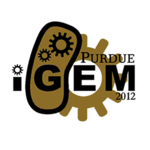About This Project
Need a to get back to the basics on what synthetic biology is? Check out our Lab Notes section below for an excellent background video.
Ask the Scientists
Join The DiscussionWhat is the context of this research?
This year, we aim to tackle two fundamental problems of engineering biological systems: standardizing DNA "parts", called BioBricks, and increasing the modularity of these parts for genome scale engineering. Our project has three components that in conjunction will address these problems.
1) Improve the characterization standard of iGEM's Registry of Standard Biological Parts with the help of international collaborators.
2) Demonstrate the usefulness of Taguchi statistical methods for optimizing BioBricks across different bacterial strains.
3) Adapting genetic tools that will improve the precision of gene expression to the BioBrick standard for their widespread among iGEM teams.
What is the significance of this project?
The Registry of Standard Biological Parts is the parts catalog for all iGEM teams and many synthetic biologists outside the iGEM competition. A better, more stringent standard for parts submission will improve the quality of parts within the Registry and in turn, the function of future living "machines" built from these parts. The iGEM competition has historically significantly advanced the larger synthetic biology community, and the vast majority of professional synthetic biologists are alumni of the competition. Therefore, it's a reasonable assumption that improving the quality of iGEM's output will translate to a greater impact by synthetic biology onto the biotechnology industry.
What are the goals of the project?
The increased funds will allow us to repair and replace some of our broken or missing lab equipment, such as buying a new PCR machine. Funds will also go to trip planning to the various iGEM competitions so that more of our members can afford to go. Funds will also be used to help us plan for future years of the Purdue iGEM team.
Budget
The budget is used for buying lab supplies and reagents, paying for travel costs to our competitions, and to plan for the future of the Purdue iGEM team.
Meet the Team
Affiliates
We are a team of several bold undergraduate researchers majoring in biological engineering, biochemistry, biomedical engineering, and biology.
Team Bio
The 2013 Purdue iGEM team is comprised of 20 undergraduate students, 3 graduate student advisers, and 2 faculty advisers. We have a great project idea this year and are starting to make it a reality. We just need funding now to do even better in the competition than before.The International Genetically Engineered Machine (iGEM) Foundation is dedicated to education and competition, advancement of synthetic biology, and the development of open community and collaboration. In 2012, iGEM spun out of MIT and became an independent nonprofit organization located in Cambridge, Massachusetts, USA. The iGEM Foundation fosters scientific research and education through organizing and operating the iGEM Competition, the premier student synthetic biology competition. It also fosters scientific research and education by establishing and operating the Registry of Standard Biological Parts, a community collection of biological components. The organization promotes the advancement of science and education by developing an open community of students and practitioners in schools, laboratories, research institutes, and industry. The iGEM community has a long history of involving students and the public in the development of the new field of synthetic biology.
Purdue iGEM
The International Genetically Engineered Machine (iGEM) Foundation is dedicated to education and competition, advancement of synthetic biology, and the development of open community and collaboration. In 2012, iGEM spun out of MIT and became an independent nonprofit organization located in Cambridge, Massachusetts, USA. iGEM fosters scientific research and education by establishing and operating the Registry of Standard Biological Parts, a community collection of biological components. The organization promotes the advancement of science and education by developing an open community of students and practitioners in schools, laboratories, research institutes, and industry.
Additional Information
Follow Us!
Facebook: https://www.facebook.com/pages/Purdue-Biomakers/522495097787205
Twitter: https://twitter.com/PurdueBiomakers
Google+: https://plus.google.com/115465447343686721859/posts
Email: PurdueBiomakers@gmail.com
Website: http://purduebiomakers.com/



Project Backers
- 21Backers
- 100%Funded
- $2,017Total Donations
- $91.29Average Donation
